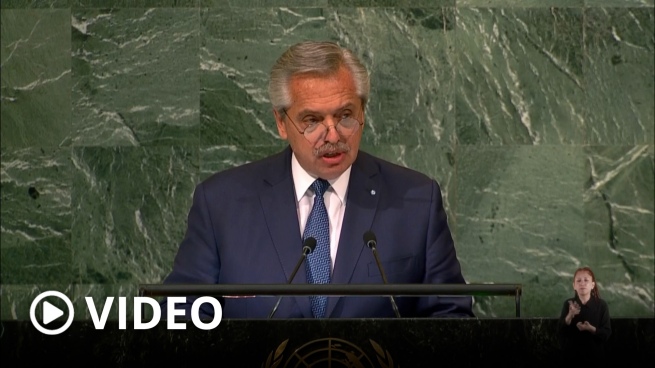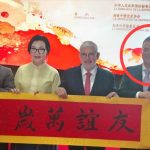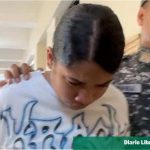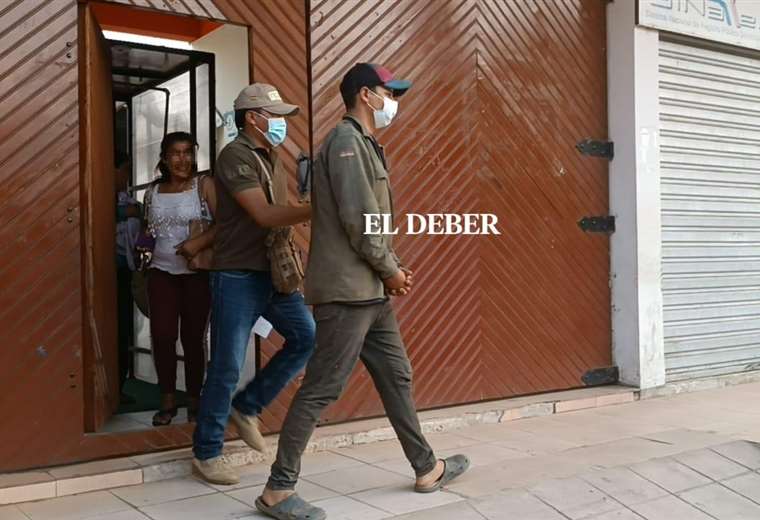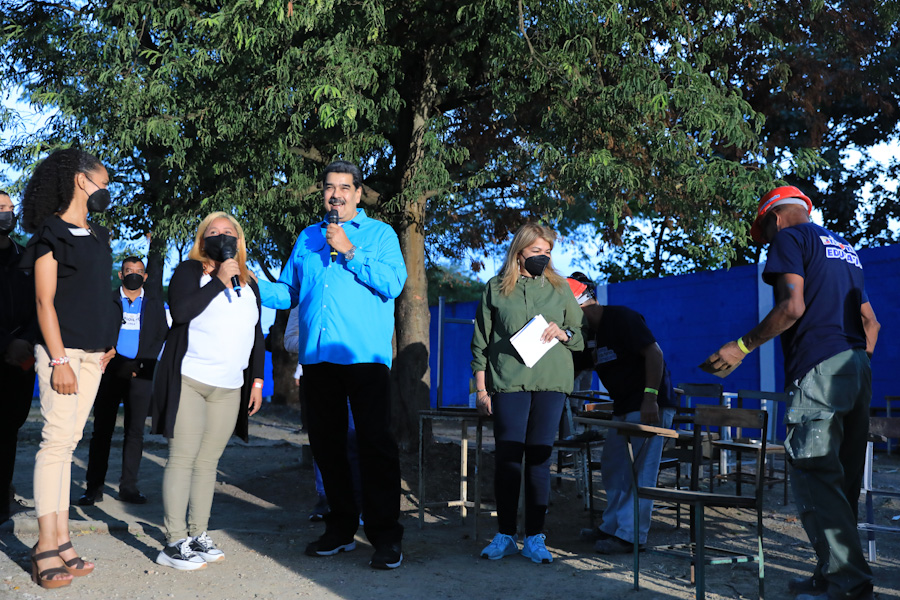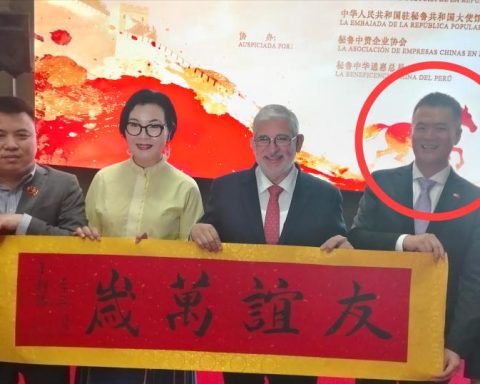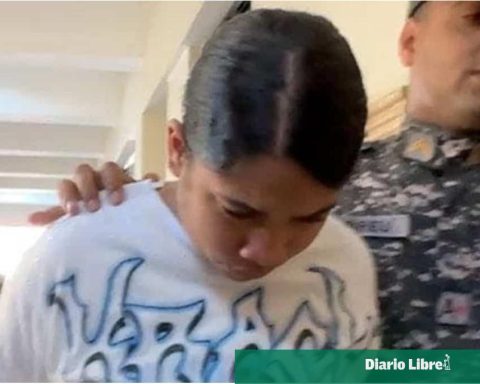Fernández called for “global rejection” of “extremist speeches” that seek to “erode democracy”
WATCH VIDEO
President Alberto Fernández requested a “global rejection” of “extremist and violent discourses” that seek to “erode” societies and democracyspeaking at the 77th UN General Assembly taking place in New York.
The president affirmed that the assassination attempt against Vice President Cristina Fernández last September 1 “not only affected public tranquility” but also “It also sought to alter a virtuous collective construction that next year will be four decades old”.
The president began his speech before the UN – the first he gave in person due to the restrictions that existed due to the pandemic the previous two years – with thanks for the “solidarity that Argentina has received from the whole world” in the face of the “attempt to assassination perpetrated against our vice president”.
Fernandez pointed out that “many times in history assassinations have been prologues to great tragedies” and “entire peoples succumbed behind those prophets of hate.”
“I am sure that the fascist violence that is disguised as republicanism will not be able to change that broad consensus to which the vast majority of Argentine society adheres”he bet.
The president considered that “Taking advantage of the uneasiness generated by the pandemic and the economic effects of the war, extremist and violent discourses proliferated and found fertile ground to sow anti-political sentiment in our societies”Therefore, he said, “remaining silent in the face of such evidence can lead us to put the very rule of law in crisis.”
“Many times in history assassinations have been prologues to great tragedies”
“Those who seek to weaken and erode democracies have specific interests that lead them to promote extreme polarization. Let us not resignedly accept this situation. Let us generate an energetic global rejection of those who promote division in our communities,” he stated.
The President also thanked “all the member states for having trusted Argentina to hold the presidency of the Human Rights Council this year.”
“Those who seek to weaken and erode democracies have specific interests that lead them to promote extreme polarization”
In his speech, which lasted the 15 minutes established by the UN regulations, He referred that “the defense of human rights is part of our identity and our history”, in which “the Mothers and Grandmothers of Plaza de Mayo taught us to persist and fight”.
On the other hand, he struggled to “impose dialogue and restore peace in the dispute that began with the military advance of the Russian Federation on the territory of Ukraine.”

debts of nations
He also warned that “indebted nations suffer much more from the effects of the established system” that causes inequalities and stated that “Argentina is among them”; after which he thanked “all the States” that supported the country “in the complex process of renegotiating” the external debt.
On this point, Fernández pointed out that It is a debt that his Government “did not generate”, referring to the administration of Mauricio Macribut in any case, he said, “he deals with all seriousness”.
“Our criteria are known: they respond to the provisions of this General Assembly in Resolution 69/319 of 2015, when it established that the restructuring of sovereign debts must be done promoting sustained and inclusive growth, minimizing economic and social costs, guaranteeing stability of the international financial system and respecting human rights,” he stressed.
food crisis
He also pointed out that food security must be guaranteed “to all the inhabitants of the planet” because “We cannot go through this time with famines”and argued that “we must access energy in safe and predictable conditions.”
“Is it fair that the fortune of just 10 men represents more than the income of 40% of the world’s population? Is it ethical that the pandemic has claimed four times more lives in the poorest countries than in the rich?” asked the president.
To these questions, he replied that “not denouncing this model of accumulation that concentrates income in a few while millions remain submerged in poverty can make us complicit in the consolidation of so much inequality.”
Noting that the UN Charter establishes that “the only legitimate sanctions are those imposed by the Security Council,” the president pointed out that Argentina “joins the demand of the peoples of Cuba and Venezuela to lift the blockades that those nations suffer”.
fight against impunity
In another section of his message, Fernández reiterated that Argentina “condemns terrorism in all its forms” and affirmed that the country continues “fighting against impunity and investigating the attacks” on the Israeli Embassy and the AMIA.
For this reason, he urged Iran to “cooperate with the Argentine judicial authorities” and asked “the international community to accompany us in our fight by avoiding receiving or sheltering any of the accused, even when they enjoy diplomatic immunity.”
Sovereignty over the Malvinas
also reaffirmed “the legitimate and imprescriptible rights of sovereignty of Argentina over the Malvinas, South Georgia, South Sandwich Islands and the surrounding maritime spaces”which “are part of the Argentine national territory and have been illegally occupied by the United Kingdom for almost 190 years”.
Fernandez pointed out that although the request made through resolution 2065 of 1965 “has remained in force and has been renewed on multiple occasions”the United Kingdom “persists in its attitude of ignoring the call to resume negotiations regarding the territorial dispute”.
The mandatary denounced that the United Kingdom “aggravated the controversy” with an “unjustified and excessive military presence on the islands” and with “calls for the illegal exploitation of resources.”
He stressed that the actions of the British Government are contrary to United Nations resolution 31/49 and once again requested the agency’s intervention: “We ask the Secretary General to renew his efforts in fulfilling that mandate and that the United Kingdom agree to heed the call of the international community and put an end to this anachronistic colonial situation,” he said.
The President also reiterated the country’s “full disposition to return to the negotiating table and seek a solution that would put an end to this prolonged sovereignty dispute.”

The Argentine delegation
Fernández was accompanied by Foreign Minister Santiago Cafiero; the Secretary General of the Presidency, Julio Vitobello; the Ministers of Security and Education, Aníbal Fernández and Jaime Perczyk, respectively; the Argentine ambassador to the United States. Jorge Argüello, and the ambassadors to the UN and UNESCO, Marcela Losardo and María del Carmen Squeff, respectively.
Also part of the delegation that accompanied the President to the UN was the first lady, Fabiola Yáñez.
When Fernández’s participation ended, the official delegation had to wait in the back of the UN headquarters, located at the intersection of 46th Street and First Avenue, because the arrival of the President of the United States, Joe Biden, generated traffic closure as a security measure.
During that period, the delegation appreciated a work by the Argentine artist Marta Minujín that is exhibited at the venue.
